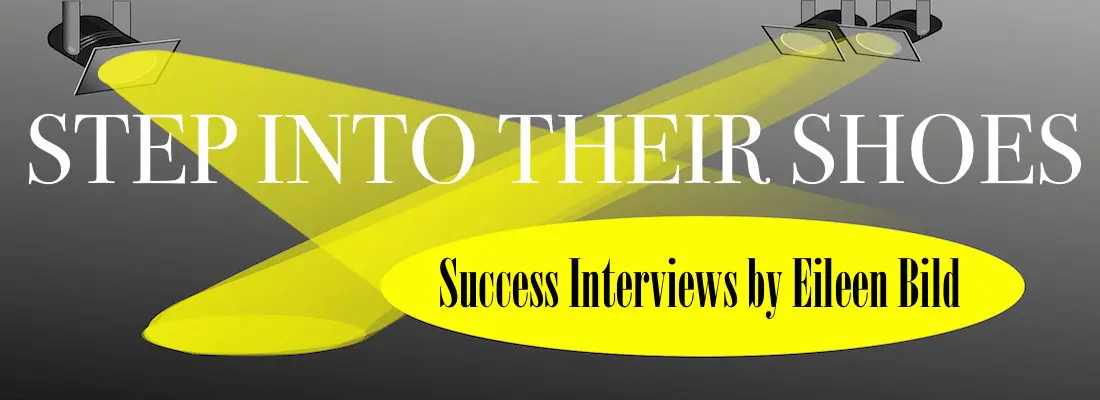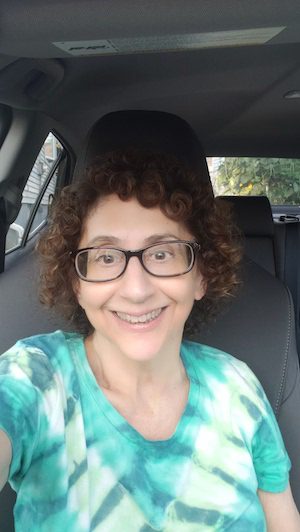Ancient Dusk – Tribal Music Goes International

You know you have met an Old Soul when you feel a deep knowledge not only through how they communicate their thoughts, but also the presence they hold.
Tarzzy Metta is one of these people! He comes from Papua New Guinea with over 20 years as a creative Indie Artist. Combining his traditional tribal music and bridging the Western culture music, Tarzzy has a dream for the world to embrace the ethnic, soothing, and authentic sounds of the past, present, and future. In this interview, we do a deep dive into Melanesian traditions in music, the creation of his band Ancient Dusk, Tarzzy’s thoughts about life and the universe, his insights into Love, and his mission to go International.
This is enlightening, inspiring, and a must-read! I hope you enjoy learning about Tarzzy as much as I have through this interview.
Eileen: You are a rising Indie Artist, along with your band Ancient Dusk, from Papua New Guinea. When did your interest in music begin and how has it evolved to where you are now?
Tarzzy: Music is an integral part of my upbringing within the Bola tribe, one of the 800-plus tribes in Papua New Guinea. The chants and melodies associated with everyday tasks, songs, and dances performed to mark special occasions had to be learnt to participate in communal life. I did not develop an interest in music in the strict interpretation of this question. I would like to say that I found my place within my society where I can best participate in its communal life.
My village had a string band called Creek Siders. They had a battery-powered guitar amplifier which introduced me to the sounds of amplified instruments. It was when I was in secondary school when I knew that this passion could be a means of making a living in the world. My roommate was from our capital city Port Moresby and he introduced me to the hard rock sound of the Australian band Cold Chisel, led by Jimmy Barnes. We formed a band then playing the music of Jimmy Barnes and Cold Chisel and other rock groups of the eighty’s era.
It was also in the eighties that PNG’s first music export The Sanguma (Magic Man/Men) band was at its height of success. That was when I was introduced to the intriguing sound created by fusing Western modern instruments with traditional Melanesian instruments and songs. I recorded my first album with CHM Studios in 1993. The material in that album was 90 percent traditional chants and melodies with the subsequent three albums that followed, and other collaborations followed in that vein. The formation of Ancient Dusk with producer Raymond Waloloki, Aro Paul Badi, and Justin Chenko Kila was aimed at bringing this music internationally. When BIG Records entered the scene, the rest is history!
Eileen: Ancient Dusk brings ancient Melanesian chants and melodies to the world, celebrating the music of 7 + 1 tribes and their musical heritage. You say you are doing it your way. What does that mean and how would you and your bandmates like to impact the world?
Tarzzy: The island of New Britain is divided into two provinces. The band Ancient Dusk hails from the western part called West New Britain. West New Britain has 7 indigenous tribes. Today West New Britain is also home to 4 generations of settlers from all over Papua New Guinea who were brought into the province in the 1960s to work on oil palm plantations. This is the +1 tribe.
West New Britain is a melting pot of indigenous Melanesian cultures. The province is dubbed the “Liklik P.N.G” (small Papua New Guinea). ‘Doing it our way’ speaks of our determination to navigate our own way in the waters of the music industry to find an audience that appreciates our music, both in our country and abroad. Our music is derived from the musical heritage of the 7+1 tribes. We aim to impact the world through the message of appreciation of the rich and diverse music available in the world today. By appreciating each other through the music that each of our cultures brings to the table, we can help make the world a better place to live.
Eileen: You come from Papua New Guinea, “A Million Different Journeys.” I would love to know about your country and its heritage, culture and music. Please share what makes it such a special place.
Tarzzy: Papua New Guinea is one of the last frontiers of the world. The last tribe to be discovered here was in the 1980s. The people are of Melanesian descent and are open, warm, and welcoming to others. Papua New Guinea has over 800 different languages. Most of the population live in the rural areas within their tribal lands and the way of life is not that entirely different from the past. However, the cash Economy has already taken over much of the subsistence way of living.
Papua New Guinea offers so much for people who would like to experience a Lifestyle outside of their own. Food is one area where one can enjoy a Highlands mumu, which is basically food cooked in an earth oven dug into the ground and then covered. On the coast, one can enjoy food cooked in a clay pot or cooked over a bubbling hot spring coming out of the ground from the sides of active volcanoes.
While the country is exactly on the equator, parts of the highlands region have a temperate-type climate while the rest of the country experiences hot and humid days to cool evenings fanned by the evening breeze, an excellent time for storytelling by the fireplace. One of the greatest attractions PNG has to offer is cultural diversity. Cultural events can be witnessed firsthand in their cultural setting in the villages or they can be witnessed in one of the many cultural shows sanctioned by the National Cultural Commission. West New Britain province hosts a biannual cultural show called the “Tavur Show” (Conch Shell Show).
Eileen: You have a very deep soul. I have read many of your insights, such as, “You create a microcosm of positivity within which you operate. Stay focused!” Have you always had a deeper understanding and perspective of the world? Please share how this influences you, your music, and your message.
Tarzzy: What is understanding? Is it something absolute, like a line on a map that reaches North? If I was to understand my neighbor, I must grow, grow into what I perceive of them through my senses, and grow into what I feel of them as human beings through my own humanity. Therefore, understanding can only come with Growth. The more we grow into the world, the more we understand it.
We grow into the world through our experiences and these experiences help our understanding. My perspective of the world is a result of my upbringing and its circumstances, the lessons I learned from the decisions I made, and the lessons I learned from the experiences of other people.
My tribal upbringing is the greatest influence on my worldview and on life itself. Every single person contributes to the life that we all share. I think it is the best expression of the term ‘common good’. Otherwise, a life lived for itself and finds expression only in itself serves no one. This has always been my guiding principle in terms of my music.
I have written over 40 songs that were put out in 4 albums by the country’s largest record company, CHM Studios. Ninety percent of this material is tribal chants and melodies. Music that expresses I am a very good rock/blues/reggae singer. As a Language (English) major, I have the tools to write songs in that language; however, I chose to leave a distinctive trail, to leave footprints that are recognizably mine without any doubt. My journey is about staying true to myself. It is about loyalty. It is about authenticity, without which we will all be faking.
Eileen: There is an outreach project you are currently involved with called Musik Outreach 4 Change. Tell me about this and the mission.
Tarzzy: The Music Outreach for Change, titled “Singsing Na Senisim Ples”, S.N.S.P is an initiative of our producer and band member, Raymond Waloloki. We have included a video summary and links to Specified Musik (Raymond’s Production label) and the S.N.S.P FB Page.
Eileen: You have had many interviews, one of which you were asked why you do not sing love songs. Yet, you do! Please share how Ancient Dusk expresses love through your music.
Tarzzy: Love is expressed in many ways. Love is expressed in different ways in different cultures. It is a natural ingredient that makes up a human being. The surest way to bring love to the world is through music because music has that universal appeal, it aims straight for the heart and hits the mark.
Ancient Dusk uses its own brand of music, the ancient tribal tongues of Melanesia, and the chants and melodies to bring this love to the world. When Ancient Dusk sings about the launch and maiden voyage of an ocean-going canoe, it celebrates the effort that is put into its construction, the art that is lovingly carved and painted along the side, the artisan’s totem that stands proudly on the bow and the feeling of togetherness and achievement in the community, and many more.
These are the exact same reasons why human beings celebrate, irrespective of where we are in the world. And we celebrate because we Love!
Eileen: One of the symbols in your country is the Conch Shell. This is often used when performing. Share the meaning of the Conch Shell and how it relates to music.
Tarzzy: The conch shell is the official symbol of where the band comes from, West New Britain Province. It is primarily a communication tool used by many coastal tribes. In my own village, we still use the conch shell to call people to worship, to call people to a designated place of gathering for meetings, to announce a death, and so forth. In music the conch shell is used in accompaniment with the ‘kundu’, the log drums in some genres of traditional songs and dances.
Eileen: You believe in personal growth. How has music been a positive influence in your life for your own and your fan’s ability to be in the world authentically with the desire to make a difference?
Tarzzy: The cosmos has a plan for everyone. But that plan also involves our own input as well. We cannot be good at what is inherent in us until we put in the effort to grow it. That plan also has a time factor. Do not wait for that time to come. You must prepare for its eventuality.
In my tribal subsistence way of life, a man must plant a garden to feed his family. From the clearing of the land until its harvest and consumption, there is a lot of effort expended. We cannot feed ourselves from what we don’t have. It also goes that we cannot give to others what we don’t have. Therefore, for me, personal growth is effort. Efforts are put into educating ourselves, honing our skills to be the best in what we do, cultivating a good attitude, and helping others. When we put the effort in for our personal growth, we bear much fruit, and we will be a blessing to so many. I have spent more than 20 years of my life in the local music scene working on myself as a person and on my music. I have stayed loyal to this genre even though there is no support in terms of promotion and publicity from popular radio stations, the other mainstream media, and the government.
I knew I had grown enough to take my music to the international scene. I needed one more person with the same dreams and aspirations as mine to complement what I have with what they have. And very soon Ancient Dusk will bring its first ancient melody to the ears of the world.
Eileen: Who has been your mentor(s) helping you to achieve your passions, visions, and dreams?
Tarzzy: My music teachers from senior high school to university were a source of encouragement and inspiration for me. They include Mr. Max Memehere, Mr. Henry Larias, and Mr. Tonny Subam. I have always been an avid follower of the Junior Kopex band and admire the songwriting skills of Uralom Kania and his vocal performances. It is always an honor for me to play a few gigs with the band whenever they tour our town Kimbe.
Eileen: As you Travel the path of reaching for the stars as an Indie Artist, what have you learned that are important lessons, both the good and the difficult ones? Based on your experience so far, any advice for others to consider for their own life journey?
Tarzzy: As an independent artist I find that I can control the direction of my music, I can create my own brand independent of other interests, and manage my music business. The greatest difficulty facing ethnic/folk and tradition-based musicians in my country is the acute lack of interest shown by so-called stakeholders in promoting this genre in the country. That is why I decided to take my music outside. I have only these to say to any musician who would like to take this road.
Work hard. Add value to yourself. Your time will come when you are ready to give from your abundance.

























